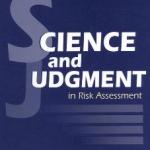The California Energy Commission just voted unanimously to require new homes to be constructed with solar panels.
Policy & Ethics
Science and medicine often deal with issues that are about finding "the needle in the haystack." We might get a better handle on p-values and science's “reproducibility” problem by considering, metaphorically, those haystacks and needles
Environmental Protection Agency Administrator Scott Pruitt’s recent announcement that EPA will not use “secret science” — that is science for which the underlying data is not available — is challenging.
"Taste great! Less filling!" This mindless Miller Lite commercial was shoved down our throats beginning in 1974 in what could be reasonably be expected to be found in a remake of Clockwork Orange. As if:
In the not-so-new realm of nontraditional health coverage, the Centers for Medicare and Medicaid Services (CMS) is expanding their Medicare Advantage plan to include benefits that meet patients “unique health needs” and improve “their quality of l
President Trump’s original physician, Harold Bornstein, is back in the news claiming that his office was “raided” and the president’s medical records removed.
Though the current buzzword in healthcare is “patient-centered,” it appears our “thought leaders” instead tend to subscribe to more paternalistic endeavors to control – oops!
The current four Horsemen of the Health Apocalypse include heart disease, diabetes, respiratory disease, and cancer – noncommunicable diseases.
Is using acupuncture to treat pain in soldiers, even in combat, a good idea? No, it's not, for reasons that I will explain below.
Electronic medical records (EMRs) were pitched as a long-sought concept of computerized universal personal health material that would mitigate issues with access and barriers to care.











